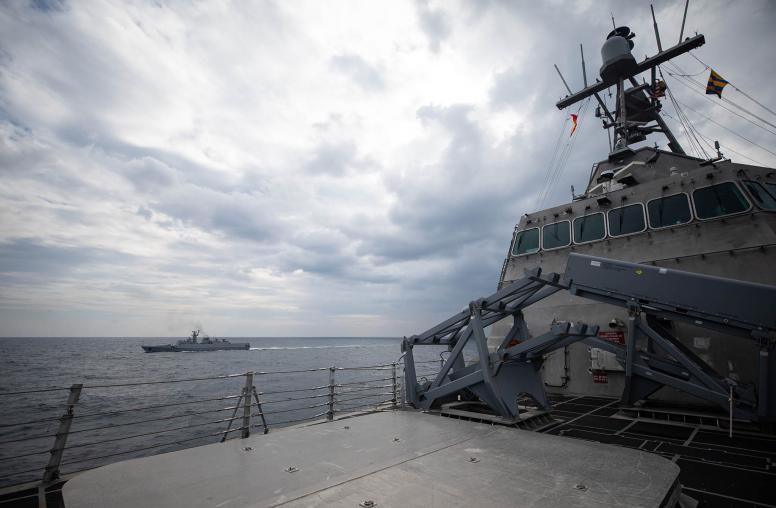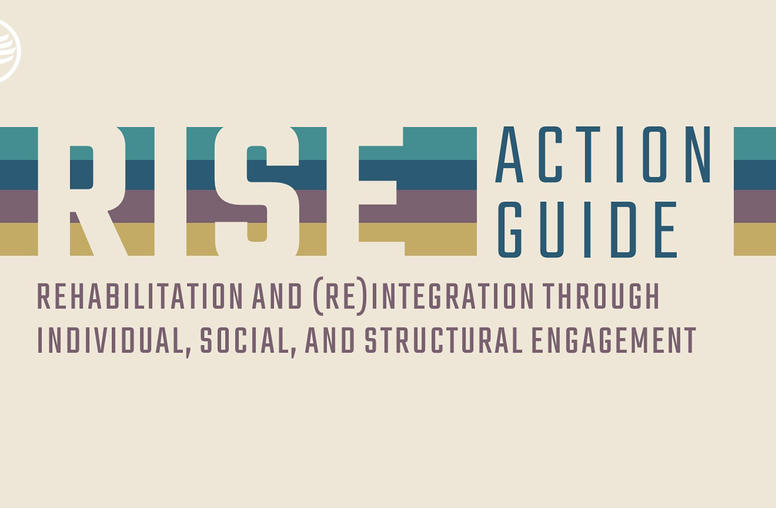Question And Answer
Publications
Articles, publications, books, tools and multimedia features from the U.S. Institute of Peace provide the latest news, analysis, research findings, practitioner guides and reports, all related to the conflict zones and issues that are at the center of the Institute’s work to prevent and reduce violent conflict.

Ukraine’s New U.S. Lifeline: Why It’s Vital and What’s Next
This week’s U.S. approval of nearly $61 billion in funds for Ukraine’s defense is a lifeline in the Ukrainians’ struggle against Russia’s unprovoked invasion and the assault on peace and rule of law in Europe and beyond. Ukrainian troops have been rationing ammunition, their lack of defensive missiles has exposed Ukrainian cities to Russian aerial attacks — and many military analysts predicted a probable collapse on part of Ukraine’s eastern defensive lines. While this U.S. action boosts Ukrainians’ capacities and morale, ending this war will need further funds, forces and security measures for those fighting and suffering for their survival — and for the redemption of international peace through rule of law.

Mirna Galic on NATO’s Long-standing Engagement in the Indo-Pacific
Contrary to China’s assertions, NATO has a long history of engagement with the Indo-Pacific. But the alliance’s deep partnerships in the region have taken on renewed importance in recent years amid Russia’s war on Ukraine and renewed strategic competition between the U.S. and China, says USIP’s Mirna Galic.

Ambassador William Taylor on the Latest U.S. Aid to Ukraine
The latest round of U.S. military aid to Ukraine will help halt Russia’s slow, grinding advance. But more long-term aid is needed to not only push back Russian forces, but to deter another future invasion, says USIP’s Ambassador William Taylor. “The only way that this war is going to end is for [Putin’s] cause … to end.”

Baghdad Is Ready for a New Chapter in U.S.-Iraq Relations
Iraqi Prime Minister Mohammed Shia al-Sudani met last week with U.S. President Joe Biden at the White House as part of a weeklong visit aimed at strengthening bilateral relations. The visit occurred amid several historic anniversaries and dangerous developments in the Middle East. April marks the 21st anniversary of the toppling of Saddam Hussein. Since 2003, the U.S.-Iraq relationship has witnessed many ups and downs. Even as tensions persist, particularly in relation to the U.S. troop presence in the country, al-Sudani’s visit — which featured the largest delegation Iraqis have brought to Washington — demonstrates Iraqi will to start a new chapter in the strategic partnership that goes beyond security.

Blinken’s China Trip Shows Both Sides Want to Stabilize Ties
U.S. Secretary of State Antony Blinken traveled to China last week as part of a series of recent high-level contacts between Washington and Beijing. Although no major breakthroughs came out of the trip, it demonstrates that both sides want to prevent bilateral ties from sinking any lower, even as U.S.-China competition continues to intensify.

Nine Things to Know About Myanmar’s Conflict Three Years On
On March 28, 2021, barely two months after the February 1 coup in Myanmar, a minor skirmish erupted at the Tarhan protest in Kalay township in central Sagaing region as demonstrators took up makeshift weapons to defend themselves against ruthless assaults by the junta’s security forces. This was the first recorded instance of civilian armed resistance to the military’s violent crackdown on peaceful protesters since the February 1 coup d’état.

Bangladesh’s Growing Role in Maritime Security
Despite several years of relative calm, piracy is back in the western Indian Ocean. When the Houthis began attacking international shipping in the Red Sea in late 2023, Somali pirates saw an opportunity to conduct attacks on ships off the Horn of Africa.

RISE Action Guide
The Rehabilitation and (Re)integration through Individual, Social, and Structural Engagement (RISE) Action Guide provides a framework for local communities and stakeholders, governments, funders, and implementors to support the disengagement of people from extremist violence and their (re)integration into, and reconciliation with, local communities. RISE adopts a peacebuilding approach informed by public health principles, emphasizing pro-social, social-ecological and community-centered interventions.

Despite Daunting Economic Headwinds, Afghan Private Sector Shows Signs of Life
Three years after the Taliban took control of Afghanistan, the country’s economy remains in a dismal state marked by depression-level price deflation, high unemployment and a collapse of GDP. Still, while the bad news for Afghans is well known, less visible are some green shoots in the country’s private sector that, if properly encouraged, could mitigate the situation. These range from small business activity to Taliban plans for major projects to the potential for an uptick in investment. Clearly nothing in those developments can stimulate a strong economic revival.

Will Solomon Islands' New Leader Bring It Closer to China?
On April 17, Solomon Islands held an election that was closely watched by China and the United States and its partners. In the following weeks, members of parliament (MPs) jockeyed to form a governing coalition, finally electing Jeremiah Manele as prime minister on May 2.